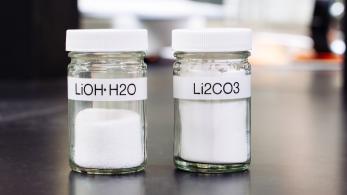Oct. 30, 2024
Albemarle’s Magnolia, Arkansas, manufacturing plants are two of the world’s largest suppliers of bromine and bromine chemicals. The plants produce ingredients used in the manufacturing of a wide range of products, including flame retardants, inorganic bromides and products for agricultural use.
Magnolia’s history reaches back to 1853, when the town was founded as an agricultural community focused on cotton. Oil was discovered east of Magnolia in 1938, and the Magnolia Oil Field became the largest producing field by volume during the early years of World War II.
The Smackover Formation is a petroleum reservoir and brine-rich mineral resource located about two miles below the surface of Magnolia and the surrounding area. Early oil drillers found the brine to be a nuisance, but within a few decades, they realized the brine could be much more.
Albemarle’s history took root about that time, with the first bromine operations opening in Magnolia in the late 1960s. About 600 employees and contractors work at the two plants, where we also are developing direct lithium extraction technology for testing



